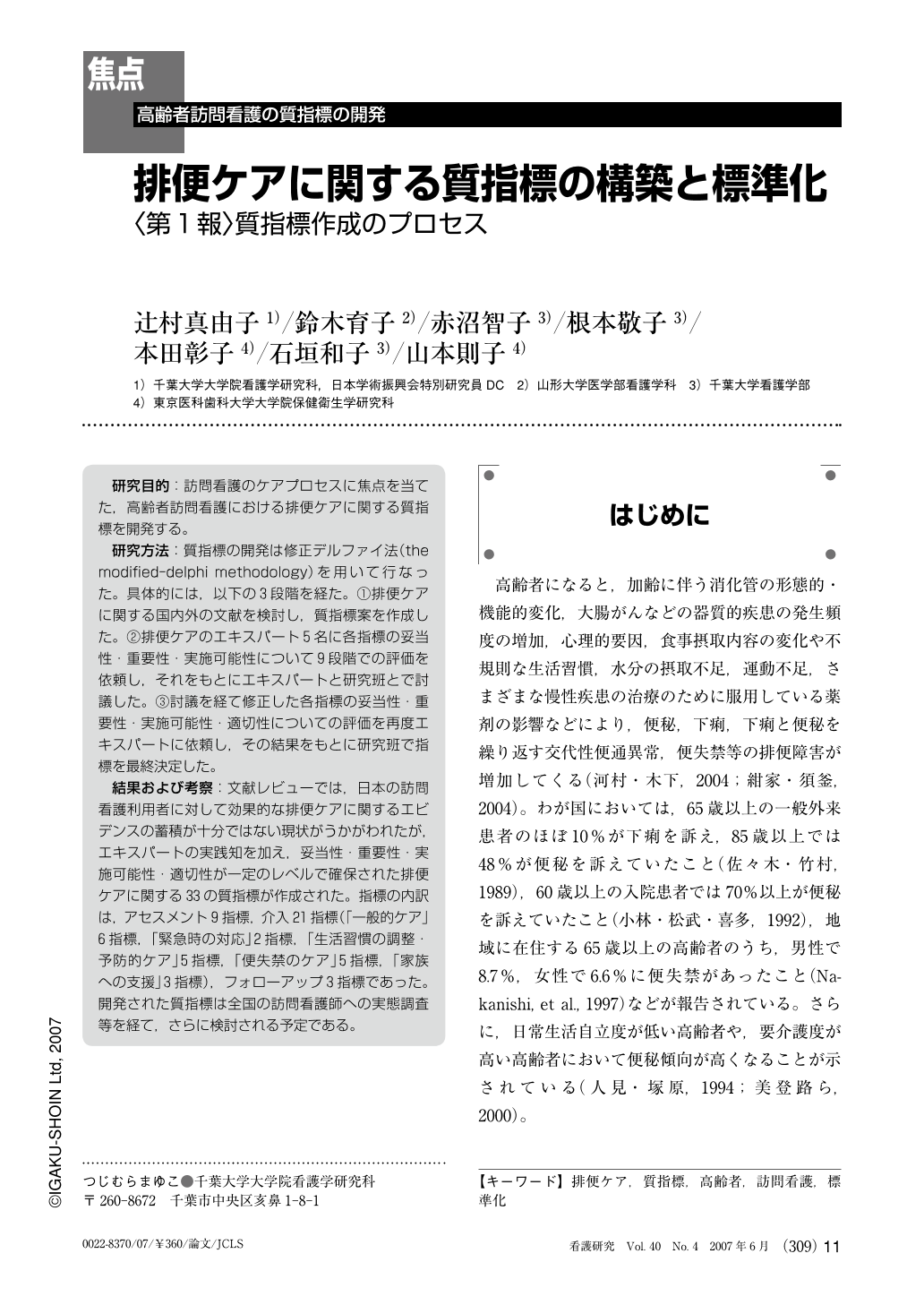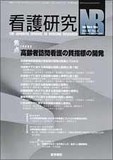Japanese
English
- 有料閲覧
- Abstract 文献概要
- 1ページ目 Look Inside
- 参考文献 Reference
- サイト内被引用 Cited by
研究目的:訪問看護のケアプロセスに焦点を当てた,高齢者訪問看護における排便ケアに関する質指標を開発する。
研究方法:質指標の開発は修正デルファイ法(the modified-delphi methodology)を用いて行なった。具体的には,以下の3段階を経た。①排便ケアに関する国内外の文献を検討し,質指標案を作成した。②排便ケアのエキスパート5名に各指標の妥当性・重要性・実施可能性について9段階での評価を依頼し,それをもとにエキスパートと研究班とで討議した。③討議を経て修正した各指標の妥当性・重要性・実施可能性・適切性についての評価を再度エキスパートに依頼し,その結果をもとに研究班で指標を最終決定した。
結果および考察:文献レビューでは,日本の訪問看護利用者に対して効果的な排便ケアに関するエビデンスの蓄積が十分ではない現状がうかがわれたが,エキスパートの実践知を加え,妥当性・重要性・実施可能性・適切性が一定のレベルで確保された排便ケアに関する33の質指標が作成された。指標の内訳は,アセスメント9指標,介入21指標(「一般的ケア」6指標,「緊急時の対応」2指標,「生活習慣の調整・予防的ケア」5指標,「便失禁のケア」5指標,「家族への支援」3指標),フォローアップ3指標であった。開発された質指標は全国の訪問看護師への実態調査等を経て,さらに検討される予定である。
The purpose of this study was to develop quality indicators (QIs) of home nursing for aged with bowel dysfunction that focus on the process of care. The QIs were developed by the modified-delphi methodology. Initially, we created the first draft of the QIs from the literature (research, nursing or medical textbooks, etc.) in Japan and overseas. Then, we asked 5 experts in the bowel care area to rate the first draft of the QIs in terms of their validity, feasibility, and importance. Based on the rating, the QIs were examined through an expert panel discussion. The indicators were modified or deleted, and new indicators were created based on this expert panel discussion. After that, we again asked experts to rate the revised QIs in terms of their validity, feasibility, importance, and adequacy. Finally, we determined the final indicators based on the experts? rating. From the literature review, it seemed that there was not enough evidence regarding effective bowel care for home nursing users in Japan. By adding experts? clinical knowledge, the resultant 33 QIs of bowel care are expected to have a certain level of validity, feasibility, importance, and adequacy for home nursing of aged in Japan. The QIs consist of : 1) assessment (9 indicators), 2) intervention that includes general care (6 indicators), emergency care (2 indicators), improvement life style & preventive care (5 indicators), fecal incontinence care (5 indicators), and support for family members (3 indicators), and 3) follow-up (3 indicators). The finalized QIs are to be examined for their applicability by a national survey of nurses working at home nursing stations.

Copyright © 2007, Igaku-Shoin Ltd. All rights reserved.


